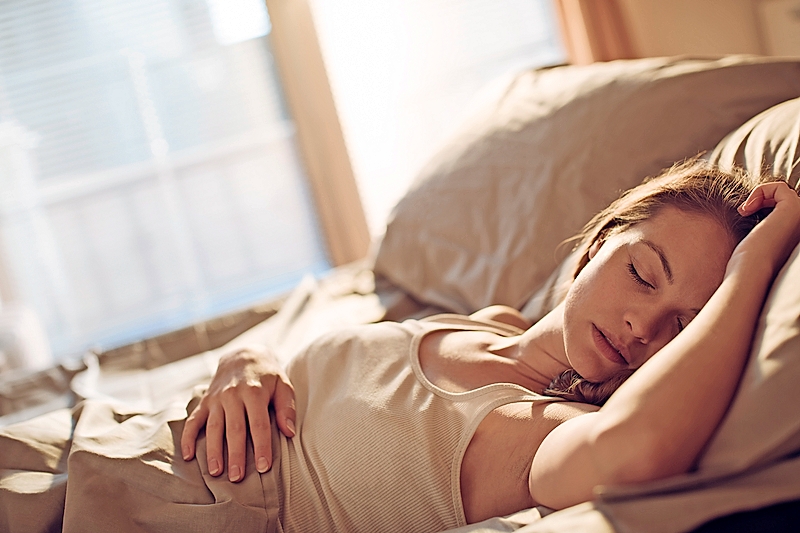Sleep Deprived—The connection between bedtime and weight gain
By Mary Kay Kleist
January 2017 View more Health & Fitness

If you’re trying to get fit, hitting the gym is just as critical as hitting the sack. Of course a lifestyle of healthy habits and regular exercise will keep you in shape, but you can take it a step further by getting enough shut-eye. Research shows that sleep loss can actually lead to weight gain.
When we’re tired, we tend to move less and our metabolism slows down. “Chronic lack of sleep can result in weight gain, the development of insulin resistance and diabetes,” said Matthew Brady, PhD, University of Chicago.
Brady and his team of researchers have investigated the relationship between sleep deprivation and fat cells. “We found that sleep restriction of young, lean, healthy control subjects for four nights of four-and-a-half hours in bed per night caused a 30 percent decrease in insulin sensitivity in fat cells. This can affect feeding behavior, promoting weight gain, which can then—over time—lead to obesity and type-2 diabetes,” said Dr. Brady.
How Much is Too Little?
How many hours per night is considered too little sleep? “Each person is different. Some are naturally shorter sleepers, some require more. At least six to seven hours per night—more if you are younger, less if you are older—is preferred, but again it’s on a case-by-case basis,” said Dr. Brady.
If you feel like only minutes went by while you slept, that’s healthy. But if you toss and turn all night and wake up often, you’re not getting efficient sleep and you won’t feel rested.
Increase in Hunger
Sleep deprivation also impacts your hunger and fullness hormones. Some experts say that lack of sleep increases levels of a hunger hormone called ghrelin, which can give you that starving sensation. Lack of sleep decreases levels of a hormone called leptin, which makes you feel full. These differences in ghrelin and leptin are likely to increase appetite, all leading to weight gain.
Muscle Loss
Lack of sleep not only causes fat gain, but it can also lead to muscle loss. When we’re not rested our body creates cortisol, the stress hormone. Cortisol tells the body to store fat and use muscle tissue for energy. So it’s especially important to get enough shut-eye when you’re stressed.
Poor Food Choices
When we’re tired, we may not make the best nutritional choices. We skip the fruits and veggies and go for processed foods, and that can pack on the pounds over time, especially if we give in to foods loaded with carbs, sugar and salt. And when we’re sleep deprived, we tend to give in easily and skip the workout. And without those endorphins, we really can feel out of gas.
The more hours that you are awake lead to more chances to take in calories that you just don’t need. Not enough sleep also affects when you feel hungry. It’s best to start your day with a healthy breakfast, but when we aren’t rested, it’s easier to skip breakfast and snack after dinner into the night.
Develop a Sleep Routine
Experts say your sleep cycle works most efficiently if you can wake and sleep at the same time daily, even on weekends. Turn off the electronics and create a bedtime ritual that is relaxing, like reading or a warm bath. Cut out caffeine by mid-afternoon since caffeine can stay in your system for at least five hours. Prime your sleep space for maximum rest by keeping the room dark and cool.
“Diet and exercise, along with making enough time for a good night’s sleep,” says Brady, “along with getting into a routine of going to bed and eating meals at the same time will likely help.”


